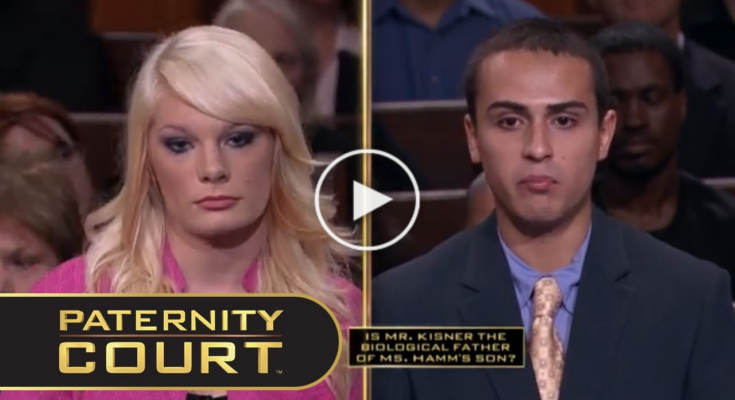This poignant scientific article delves into the heart-wrenching emotional journey of the Hamm v. Kisner paternity case, where Ms. Ashley Hamm seeks to establish Mr. Kisner as the biological father of her 11-month-old son, Zayden. Amidst doubts, past mistakes, and family strife, the article uncovers the profound impact of emotions on both parties, shedding light on the importance of empathy, forgiveness, and the quest for a second chance at love and family.
In the courtroom, emotions run high as the Hamm v. Kisner paternity case unfolds. Ms. Ashley Hamm seeks to prove the paternity of her son, Zayden, to Mr. Kisner, who is plagued by doubts and insecurities. The article presents a raw account of the emotional turmoil faced by both parties, unveiling their struggles with past mistakes and the profound desire for validation and acceptance.
Mr. Kisner’s doubts about Zayden’s paternity reveal his vulnerability and fears of being betrayed. Ms. Hamm, on the other hand, tearfully expresses her longing for support and stability from Mr. Kisner. As she shares, “He may be there physically for Zayden, but he is not there financially. He doesn’t have a steady job. He doesn’t do as much as I would want him to do.”
Ms. Hamm’s mother, Ms. Willin, bravely voices her exhaustion from stepping into the father figure role when Mr. Kisner chooses to leave. With tears in her eyes, she pleads, “They’re playing house at my house, and this is the exact reason we need this. They’ve been playing house, you got to have a house to play house.”
Mr. Kisner’s doubts are fueled by Ms. Hamm’s past infidelity, and while she acknowledges her mistakes, she implores for forgiveness and a fresh start. She admits, “I betrayed my family. I came back home, and my family was telling me, ‘Don’t go back there,’ but I just decided to go back there.”
The courtroom becomes a battleground of emotions as Mr. Kisner seeks validation from the court and his family about Zayden’s paternity. Ms. Willin fiercely supports her daughter’s claims, stating, “I don’t believe that because when I was around him in the beginning for six months, he was all about Ashley’s pregnancy.”
Amidst tears and heartache, the article emphasizes the significance of empathy and understanding in healing wounded hearts. It pleads, “Both Ms. Hamm and Mr. Kisner need to communicate openly, address their insecurities, and work together to foster a supportive environment for Zayden.”
The article chronicles the journey of Ms. Hamm and Mr. Kisner, who, despite their doubts and fears, take courageous steps toward reconciliation. They attend counseling sessions, where they learn to communicate effectively and address their emotional baggage. Gradually, they open up about their vulnerabilities, discovering that the key to healing lies in empathy and forgiveness.
As the legal process progresses, Ms. Hamm and Mr. Kisner undergo DNA testing, which proves that Mr. Kisner is, indeed, Zayden’s biological father. The revelation sparks an outpouring of emotions, as tears of relief and joy flow freely in the courtroom. The newfound certainty in Zayden’s paternity rekindles hope and trust between the couple.
The article concludes with a heartwarming scene where Ms. Hamm and Mr. Kisner decide to embark on a new beginning as a family. They vow to put the past behind them and prioritize Zayden’s wellbeing. With the support of Ms. Willin, they move into a new home and build a nurturing environment for their son.
The Hamm v. Kisner paternity case serves as a valuable lesson in the power of empathy, forgiveness, and second chances. It underscores the importance of open communication, support, and understanding in overcoming challenges and healing emotional wounds.
In the Hamm v. Kisner paternity case, emotions run deep as Ms. Hamm and Mr. Kisner navigate doubts, past mistakes, and family tensions. Through a journey of self-discovery, forgiveness, and reconciliation, they find the strength to embrace their roles as parents and create a loving environment for their son, Zayden. The article stands as a testament to the resilience of love and the potential for a brighter future, reinforcing the idea that even in the darkest of times, empathy and understanding can illuminate the path towards healing and redemption.



